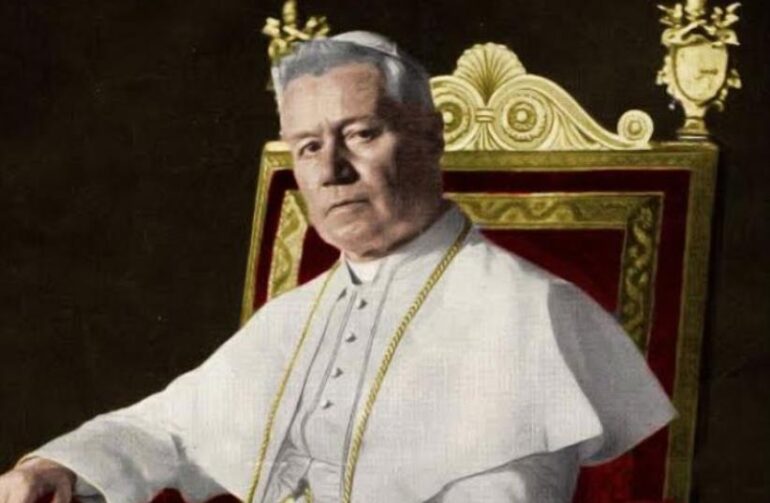In 1904, Theodor Herzl met with Pope Pius X in Rome to seek his support for Zionist efforts to establish a Jewish state. Instead of agreeing to Herzl’s request for assistance, however, the Pope gave a detailed explanation for why Jews ought to remain without sovereignty.
The establishment of the State of Israel created the greatest theological scandal in the history of the Western world.
In the past few decades, many sects of Christianity have modified their doctrines on the exile of the Jewish people with reinterpretations of its theological meaning. This theological revision is part of what enables many Christians to politically support the State of Israel today.
Looking at previous centuries, however, would expose a reality in which most of the Western world’s relationship with God – the quest for a meaningful existence, people’s hopes and prayers, their much needed yet fragile faith – was dependent rather literally on the none-existence of a Jewish state.
The none-existence of the State of Israel began some 2,000 years back when the Romans burned down the Temple and exiled the Israelites from Judea.
This event gave rise to a new theology with ancient roots going back to the Assyrian exile of the Israeli kingdom, when the surrounding nations exclaimed “These are the people of the Lord, yet they have been taken out of His land.”
Supersessionism, or Christian Replacement Theology, similarly held that the Jewish loss of political sovereignty must be a sign for their abandonment by God.
Originating in the 4th Century with St. Augustine, Catholics held the belief that the exile was to serve an “eternal witness” to the truth of the hostile prophecies of the Jew’s own Scriptures against them, and the triumph of the Church. And it is precisely the “unchoseness” of the Jews represented by the exile that would make room for the new people of God – “The Church is the new Israel.”
From that point on, as long as the Jew was exiled and stateless, prayer in Sunday school was made possible, as the former provided the theological verification for the latter. A sovereign Israel was feared and unwanted, as it would undermine the inner coherence of Christian theological positions and challenge a fundamental premise of their faith.
With this theological backdrop, the 20th century ingathering of millions of Jews from throughout the world, and particularly the revival of the scattered people into a sovereign nation with land, military power, political and economic systems, literature and culture, rattled the foundations of the Christian meta-analysis of historical unraveling and its meaning.
In an effort to deal with the crisis, the Vatican tried to downplay the significance of the Jewish return. This attempt was made somewhat possible as in 1948 Jewish sovereignty did not yet include the heartlands of Judea and Jerusalem. But this too unequivocally shattered with the Biblically profound atmosphere and events of the Six Day War in 1967.
The effects of Christian doctrines on the collective unconscious of the Western world have continued to exist even after its secularization, influencing the West’s attitude to Israel still today.
The imprints that Christian doctrines had left on the Western world’s psyche lie at the heart of today’s delegitimization and internationalizing attempts pushed by the global community.
Behind the international community’s constant attempt to internationalize the conflict lies the agenda of taking the control from Israel’s hands, with an intense focus on the heartlands of Judea and Samaria, and the capital Jerusalem, and handing it over to foreign international powers.
Internationalization is essentially the delegitimization of rights to an independent state. The celebration of Israel’s Independence Day is, therefore, both the antithesis and antidote to the unconscious bias of the Western world against the legitimacy of the Hebrew state.





